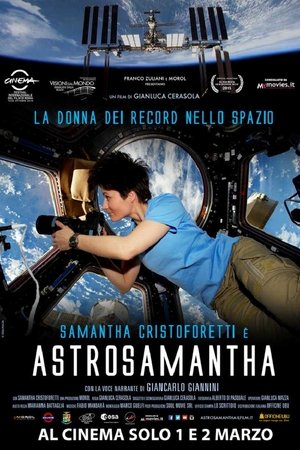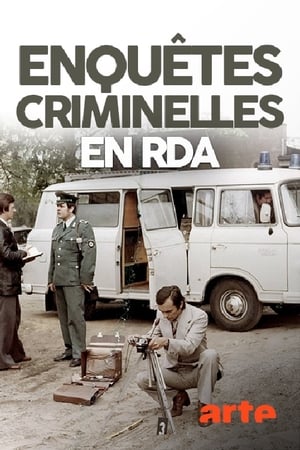

The Ministry for State Security - Everyday life at a public authority(2002)
Former heads, senior officers and the rector of the MfS law school explain how the ministry functioned. The interviewees see themselves as legitimate actors with a clear mandate and political enemy image. They provide an insight into the techniques and routines of secret service work, psychological tricks during interrogations and the management of “unofficial collaborators”. What they all have in common is that they are not aware of any moral guilt. The directors contrast their footage of prisons and archives with the statements of former Stasi employees in an attempt to expose their evasions and efforts at suppression.

Movie: The Ministry for State Security - Everyday life at a public authority
Top 10 Billed Cast
himself
himself
himself
himself
himself
himself
himself
himself
himself
himself

Das Ministerium für Staatssicherheit - Alltag einer Behörde
HomePage
Overview
Former heads, senior officers and the rector of the MfS law school explain how the ministry functioned. The interviewees see themselves as legitimate actors with a clear mandate and political enemy image. They provide an insight into the techniques and routines of secret service work, psychological tricks during interrogations and the management of “unofficial collaborators”. What they all have in common is that they are not aware of any moral guilt. The directors contrast their footage of prisons and archives with the statements of former Stasi employees in an attempt to expose their evasions and efforts at suppression.
Release Date
2002-10-16
Average
6
Rating:
3.0 startsTagline
Genres
Languages:
DeutschKeywords
Recommendations Movies
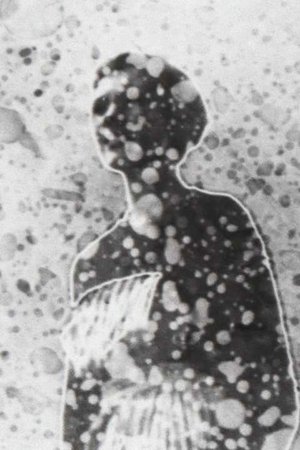 7.1
7.1Lion(en)
A project spanning three years of production and research, Lion is a collection of 7 short films exploring the Chernobyl disaster, the nature of radiation, memory, and personal history. Conceptually arranged in to a film “album”, Lion’s seven works navigate atomic fallout and a girl’s adolescence, a dream before death, radiation as a cause and cure for cancer, masculine bravado, feminine obsession, a trip to Chernobyl amongst the death of a matriarch, and the destruction of memory. Composed of seven works, Lion is a series of films created on 16mm and hand processed with darkroom techniques that mimic the effects of radiation on film. Researched in Chernobyl, the series is a product of memories, history, pop culture and technical experiments to create visual representations of invisible forces.
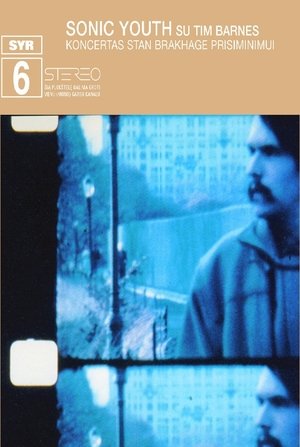 5.0
5.0Sonic Youth: Koncertas Stan Brakhage Prisiminimui (April 12, 2003)(en)
Filmed April 12, 2003 at a benefit concert held at and for The Anthology Film Archives, the international center for the preservation, study, and exhibition of avant-garde and independent cinema. In addition to screening films for the public, AFA houses a film museum, research library and art gallery. The event, which raised money for the Archives and celebrated the life and work of avant-garde film maker Stan Brakhage, featured Sonic Youth providing an improvised instrumental collaboration with silent Brakhage’s films. The band performed with drummer/percussionist Tim Barnes (Essex Green, Jukeboxer, Silver Jews).
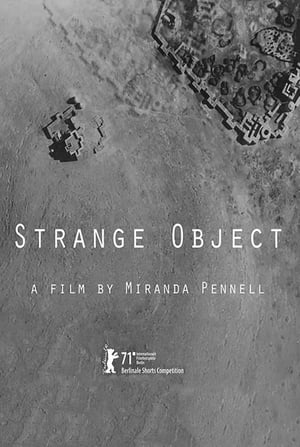 6.0
6.0Strange Object(en)
An archival investigation into the imperial image-making of the RAF ‘Z Unit’, which determined the destruction of human, animal and cultural life across Somaliland, as well as Africa and Asia.
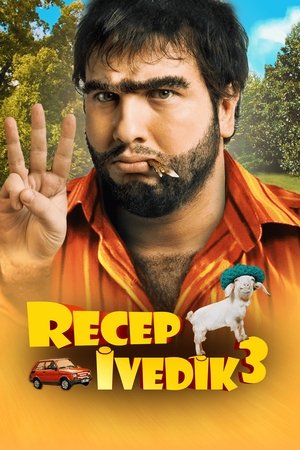 4.6
4.6Recep Ivedik 3(tr)
Recep Ivedik has been depressed since the death of his grandmother. Everyone who tries to help him fails. A young girl named Zeynep, who can't find an apartment, stays with Recep. Initially, the two can't stand each others but after a while, they grow close. Despite many adventures together, Recep's depression won't go away. That is until he experiences something he had never experienced before.
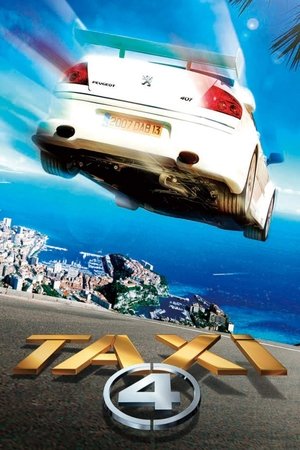 5.6
5.6Taxi 4(fr)
Before being extradited to Africa to stand trial, a notorious Belgian criminal is entrusted to the Marseilles police department for less than 24 hours. But the wily crook convinces bumbling policeman Emilien he's a lowly Belgian embassy employee who got railroaded by the brilliant master criminal.
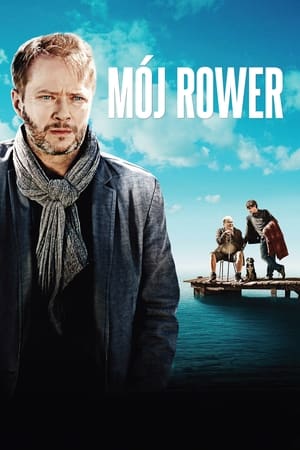 5.7
5.7My Father's Bike(pl)
Grandfather's wife unexpectedly leaves him for another man and this sparks a series of events. His son and grandson arrive from abroad and set of for a journey to find a woman dear to each of them.
Pilot(en)
Life as a pilot was never easy, filled with long hours and the weight of responsibility. One day, after an exhausting shift, a pilot fell into a deep sleep. In his dream, he was soaring high above the clouds, expertly navigating a sleek jet plane. The sky was endless, painted in hues of orange and blue, as he prepared to land at a bustling airport. The landing was flawless, and as he stepped off the plane, a beautiful girl approached, asking for a photo. They smiled as the camera clicked, capturing a moment of pride and joy. As he began his journey home in the dream, a sudden sound interrupted him-a doorbell. He blinked awake to find his sister at the door, smiling and saying, "Dinner's ready!" The pilot chuckled, realizing it had all been a dream. But in that brief escape, he had experienced the thrill of his job and a reminder of the simple joys of life. This film captures the dual reality of a pilot's life-hard work and fleeting dreams.
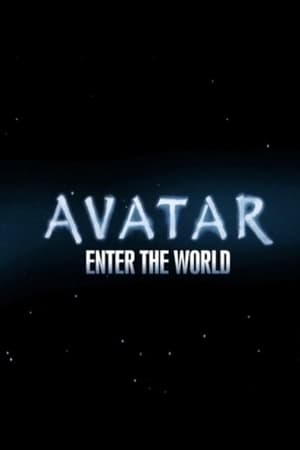 3.8
3.8Avatar: Enter The World(en)
A behind the scenes look at the new James Cameron blockbuster “Avatar”, which stars Aussie Sam Worthington. Hastily produced by Australia’s Nine Network following the film’s release.
 6.0
6.0Immortality and Resurrection For All!(ru)
The last film in Vidokle's trilogy on Cosmism is a meditation on the museum as the site of resurrection-a central idea for many Cosmist thinkers, scientists and avant-garde artists. Filmed at the State Tretyakov Gallery, the Moscow Zoological Museum, The Lenin Library, and the Museum of Revolution, the film looks at museological and archival techniques of collection, restoration and conservation as a means of the material restoration of life, following an essay penned by Nikolai Federov on this subject in the 1880s. The film follows a cast comprised of present-day followers of Federov, several actors, artists and a Pharaoh Hound that playfully enact a resurrection of a mummy, a close examination of Malevich's Black Square, Rodchenko's spatial constructions, taxidermied animals, artifacts of the Russian Revolution, skeletons, and mannequins in tableau vivant-like scenes, in order to create a contemporary visualization of the poetry implicit in Federov's writings.
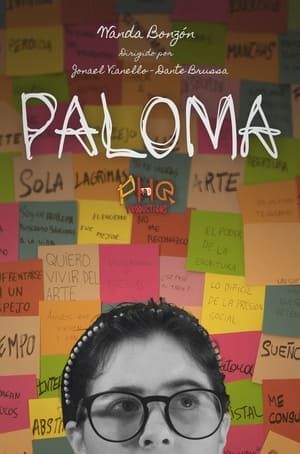 9.5
9.5PALOMA(es)
Paloma is a young adult who finds herself living in automatic mode, following every imposed social norm, already working in an office and living alone in a studio apartment. Her daily life passes fleetingly and with little taste, until one night, after a long day of work, she receives an email titled FOR MY FUTURE SELF, which prompts her to change her life.
 6.0
6.0Pompon Little Bear: The Dream of the Totem Tree(fr)
A new day begins in the forest, and Pompon wonders what to do today. He is ready to live new adventures full of joy and poetry with all his friends !
 6.1
6.1Sonic Soldier Borgman: Last Battle(ja)
It has been three years since the end of the series. Ryo works for NASA as an engineer on a large rocket project. Anise, fellow Borgman and lover, has been reduced to flipping burgers in a restaurant. So naturally, when she gets a letter offering her a professional job in a big, Japanese, high-tech project, she jumps at the chance. Ryo, however, is as indecisive as ever and so she leaves for Japan without him. Chuck Sweager, the third Borgman, is a police officer, as is his girlfriend Miki...
 4.5
4.5Slade: It's Slade(en)
With special guests and stories and from those who where there, see, hear and feel the music from first-hand accounts of the Glam Rock Kings of the 1970s: Slade.
 7.1
7.1Tajomaru: Avenging Blade(ja)
TAJOMARU is the famous 'bandit' of the forest from RASHOMON. Whoever kills Tajomaru inherits his name, status and sword. A royal brother leaves his kingdom to protect the princess he loves, only to find a series of harrowing adventures along the way which lead him back to where he came from, and then disinheriting his past to become the bandit TAJOMARU.
 7.8
7.8An Epic At Sea: The Making of Pirates of the Caribbean: The Curse of the Black Pearl(en)
Behind the scenes documentary of the making of Pirates of the Caribbean: Curse of the Black Pearl, featuring behind the scenes footage, interviews with Cast and crew and revives some previously unknown background information.
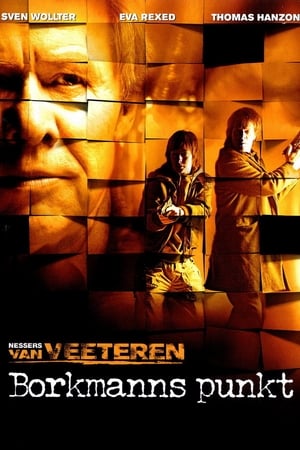 6.0
6.0Borkmann's Point(sv)
Van Veeteren finds retiring from the police force is easier said than done when two decapitated bodies are found in quick succession. The matching MO in the two grisly murders brings the investigation teams of Maardam and Kaalbringen together - a collaboration that is not without its problems.
Similar Movies
 7.3
7.3The Red Elvis(de)
A documentary on the late American entertainer Dean Reed, who became a huge star in East Germany after settling there in 1973.
Ich will da sein - Jenny Gröllmann(de)
The film accompanies Jenny Gröllmann, a German actress, during the last two years of her life.
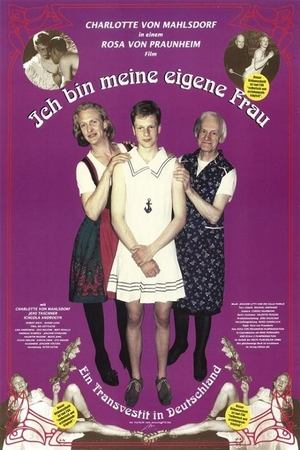 4.3
4.3I Am My Own Woman(de)
The life story of Charlotte von Mahlsdorf, who survived the Nazi reign as a trans woman and helped start the German gay liberation movement. Documentary with some dramatized scenes. Two actors play the young and middle aged Charlotte and she plays herself in the later years.
 3.2
3.2Großes Kino made in DDR(de)
In 2016, DEFA celebrates its 70th anniversary: the film embarks on a journey into the exciting film history of the GDR. In a comprehensive kaleidoscope, the importance of DEFA productions is illuminated, the relevance of the films as propaganda productions for the GDR, which socio-political themes were in the foreground, but also which heroes DEFA brought to the screen and celebrated as people from the people.
 8.0
8.0Last to Know(de)
In the documentary Last To Know political prisoners, sent to jail for openly opposing the East German regime that existed until the German reunification in 1990, talk about their times of trial and their lives today. Neither they, nor their families have come to terms with what happened.
 8.0
8.0Kalter Krieg der Konzerte - Wie Bruce Springsteen den Osten rockte(de)
Berlin, summer 1988: While Michael Jackson and Pink Floyd perform in the West, East Berliners can look forward to Bruce Springsteen, Depeche Mode and James Brown. The documentary reveals how the organizers enforced the concerts with the state authorities. On the anniversary of the fall of the Wall.
 9.0
9.0Stasi, un État contre son peuple(fr)
After the fall of the Berlin Wall, thousands of documents were hastily shredded by the dreaded GDR political police. 16,000 bags filled with six million pieces of paper were found. Thanks to the meticulous work of technology, the destinies of men and women who had been spied on and recorded without their knowledge could be reconstructed.
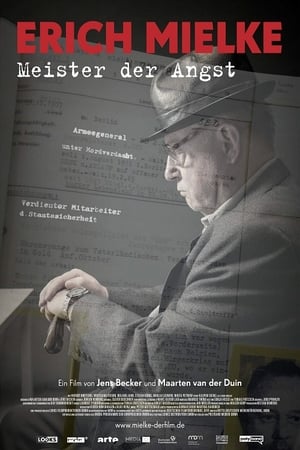 5.0
5.0Erich Mielke - Master of Fear(de)
Docudrama about life, career and breakdown of Erich Mielke, the former Security chief of East Germany.
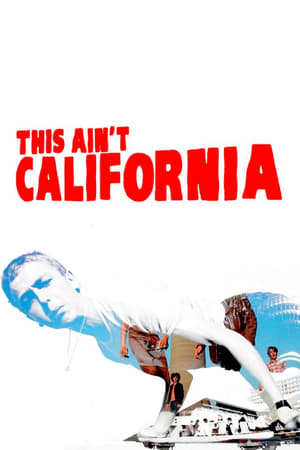 6.5
6.5This Ain't California(de)
A retrospective look at the youth cultures born in the German Democratic Republic. A celebration of the lust for life, a contemporary trip into the world of skate, a tale on three heroes and their boards, from their childhood in the seventies, through their teenage rebellion in the eighties and the summer of 1989, when their life changed forever, to 2011.
Der Sturz - Honeckers Ende(de)
Erich Honecker ruled the GDR for 18 years. His fall in 1989 heralded the downfall of the state that had called itself "the better Germany" for 40 years. Nazi victim and autocrat, bourgeois and power-conscious: Honecker was an ideological hardliner who coordinated the construction of the Wall in 1961 and whose regime was known as an unjust state for Wall deaths, firing orders, the Stasi and forced adoptions. In the wake of the fall of communism, the former model socialist fell into homelessness and found himself on the run in his own country. Suffering from cancer, he managed to evade responsibility before a court by emigrating to Chile, where he died in 1994. This gripping documentary portrays the rise and fall of this contradictory German politician with an impressive array of top-class international and national contemporary witnesses. Erich Honecker would have been 100 years old on August 25, 2012.
 6.8
6.8Karl Marx City(de)
Petra Epperlein and Michael Tucker take a powerfully personal journey through the former East Germany, as Epperlein investigates her father’s 1999 suicide and the possibility that he may have worked as a spy for the dreaded Stasi security service.
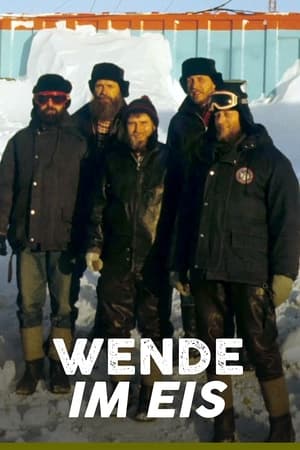 8.0
8.0Reunification in the Ice: The Story of the Last GDR Antarctic Explorers(de)
In 1989, thirteen GDR scientists and technicians set off from East Berlin to the Georg Forster research station in the Antarctic. During their expedition the Berlin Wall fell on November 9th. Cut off from the images that go around the world, the men can only experience the historical events passively. When they returned in the spring of 1991, their homeland was a foreign country. The documentary reconstructs the thoughts and feelings of the East German researchers on the basis of eyewitness accounts, diary excerpts, letters, film material, grandiose landscape shots from the location of the action and unique photos to make the consequences of the events tens of thousands of kilometers away on the small GDR expedition in the middle of the eternal ice tangible.
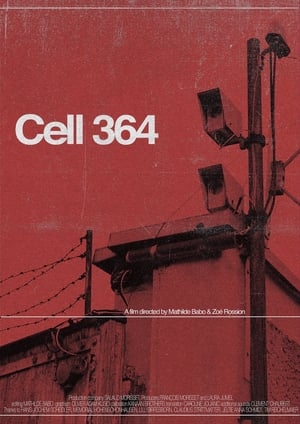 7.5
7.5Cell 364(de)
While Germany sits as one of the major democratic models, an ex-prisoner of the Stasi delivers from his former cell a frightening testimony that questions the sustainability of our contemporary democracies.
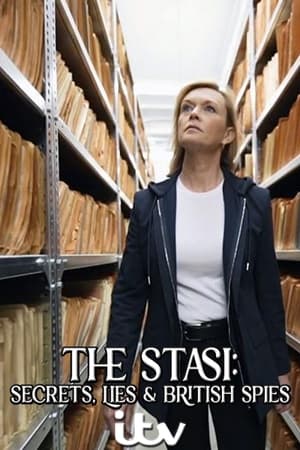 0.0
0.0The Stasi: Secrets, Lies and British Spies(en)
With access to recently-opened court files, Julie Etchingham reveals some of the Stasi's UK operations and asks why its other secrets are yet to be revealed.
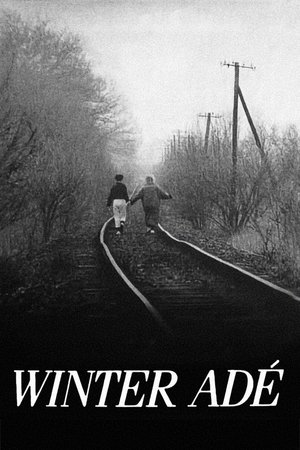 7.6
7.6After Winter Comes Spring(de)
A locomotive journey traversing the North to the South of the German Democratic Republic on the eve of its dissolution. Labourers, punks, mothers, intellectuals, young and old are implored to reflect on their life choices, the sacrifices they've made, and their place in the world. Despite everything, hope persists.
 7.0
7.0Lenin kam nur bis Lüdenscheid - Meine kleine deutsche Revolution(de)
The free, almost naive view from the perspective of a child puts the "68ers" in a new, illuminating light in the anniversary year 2008. The film is a provocative reckoning with the ideological upbringing that seemed so progressive and yet was suffocated by the children's desire to finally grow up. With an ironic eye and a feuilletonistic style, author Richard David Precht and Cologne documentary film director André Schäfer trace a childhood in the West German provinces - and place the major events of those years in completely different, smaller and very private contexts.
 6.6
6.6Heimatkunde(de)
Former "Titanic" satire magazine editor Martin Sonneborn takes an undercover trip around Berlin and discovers the East-German mentality and what is left of the socialist German Democratic Republic.

